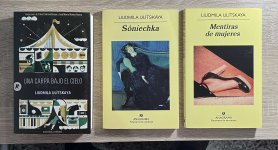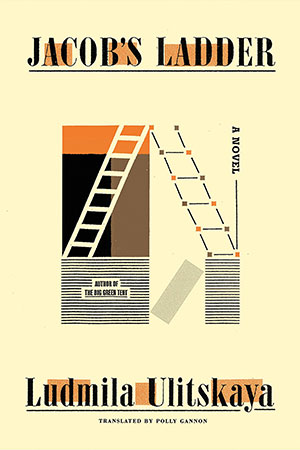I like to spend time—usually at least a few weeks, sometimes more—before I write up my little reviews because it gives me time to think about what I’ve read and also to ponder what I think about it. Waiting also gives me a chance to read what others say about the book and about the author. The downside is that I take notes and, on occasion, mislay them. So it is with Ulitskaya’s
Big Green Tent. I read a lot about both the author and the book from all over the internet and then, just this morning, rediscovered some of my notes. Because I think what I found is particularly worthwhile (and because I forgot about these reviews when writing my own), I want to post them here for others.
The first quotation is by Ruth Wallach, a professor at the University of Southern California. She reviewed a collection of Ultiskaya’s stories in 1999 in the “Slavic and East European Journal” and said several things that I think are not only very perceptive but also helped me understand the author better:
“Her works are complex, often weaving several human stories…and layering historic events into the lives of gray, little people who lead a banal existence. As Ulitskaya explained…she is not interested in homo sovieticus, but in the outsiders in Soviet society…. Since Ulitskaya was born in Bashkiria, she brings to her stories a sensibility from the periphery, where the non-Russian and the Russian had to coexist.
Ulitskaya's characters are sympathetic, be they religious, Jewish (lots of Jews in her stories), children, old; most of them are women. Like many of her contemporaries, Ulitskaya writes about the human body, about the senseless but historically rooted violence of Soviet society, about acts of intimacy which the fragile psyches populating her novels manage to transcend…. While the characters in all these stories occasionally inspire our pity, they manage to construct, and perhaps even control, their lives despite the odds.”
Then, in a review of
Jacob’s Ladder in the
New York Times, Randy Rosenthal made this really acute observation: "[the book] dramatizes this Russian concept of
sudba, the understanding of fate as a kind of prison we can never escape. But at a subtler level, it’s about the essence of life itself, particularly the essence of our ancestors that’s manifested through us.”




